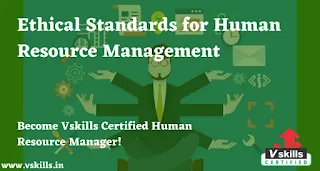Human resources (HR) is an integral function within organizations, responsible for managing the most valuable asset: the workforce. HR professionals play a pivotal role in attracting, developing, and retaining talented individuals, aligning their skills and abilities with the organization's goals. They are the bridge between employees and management, facilitating effective communication and fostering a positive work culture. HR functions encompass a wide range of responsibilities, from recruitment and talent acquisition to performance management, employee development, and maintaining compliance with labor laws and regulations. By focusing on employee well-being, HR professionals contribute to creating a productive and engaged workforce, ultimately driving the organization's success.
Compliance with labor laws and regulations is a critical responsibility of HR professionals. They stay informed about employment legislation, ensuring the organization's policies and practices are up-to-date and in line with legal requirements. HR oversees proper documentation, maintains accurate employee records, and administers payroll and benefits while ensuring fair treatment and non-discrimination. In times of uncertainty, such as during a pandemic or other crises, HR plays a crucial role in ensuring the safety and well-being of employees, implementing health and safety protocols, and managing remote work arrangements.
Human resources professionals play a crucial role in managing the workforce and supporting the overall success of an organization. To excel in this field, HR professionals need a diverse set of skills to effectively handle various responsibilities. Here are the essential skills needed for human resources:
Communication: Strong verbal and written communication skills are vital for HR professionals to effectively interact with employees, management, and external stakeholders.
Interpersonal Skills: HR professionals must be approachable and empathetic, as they often deal with employee concerns, conflicts, and sensitive matters.
Problem-Solving: The ability to identify issues and find practical solutions is crucial for resolving employee-related problems and improving HR processes.
Conflict Resolution: HR professionals need to mediate conflicts and facilitate productive discussions to maintain a harmonious work environment.
Employment Law and Compliance: Understanding labor laws and regulations is essential for ensuring the organization's practices align with legal requirements.
Talent Acquisition: Skills in recruitment and talent acquisition involve sourcing, interviewing, and selecting suitable candidates for various positions.
Onboarding and Orientation: HR professionals should be adept at creating effective onboarding programs to help new employees integrate into the organization smoothly.
Performance Management: The ability to implement performance appraisal processes, set goals, and provide feedback to employees is essential for driving performance improvement.
Training and Development: HR professionals must identify employee training needs and design development programs to enhance skills and knowledge.
Compensation and Benefits: Understanding compensation structures, benefits administration, and salary benchmarking is crucial for maintaining a competitive workforce.
Data Analysis: Analyzing HR metrics and data can provide valuable insights for decision-making and strategic planning.
HR Information Systems (HRIS): Familiarity with HRIS software facilitates efficient management of employee data and HR processes.
Organizational Development: HR professionals may be involved in initiatives related to organizational culture, change management, and employee engagement.
Employee Relations: Handling employee grievances, conducting exit interviews, and fostering positive employee relations are essential for maintaining a healthy work environment.
Ethical Conduct: HR professionals often deal with sensitive and confidential information, so maintaining high ethical standards is critical.
Leadership Skills: For HR managers and leaders, strong leadership abilities are necessary for guiding and inspiring HR teams.
Adaptability: Being flexible and adaptable allows HR professionals to respond effectively to changing organizational needs and external factors.
Business Acumen: Understanding the organization's goals, industry, and market dynamics helps HR professionals align HR strategies with business objectives.
Negotiation Skills: HR professionals may negotiate with employees, unions, or external vendors, making negotiation skills valuable.
Project Management: Managing HR initiatives and projects requires effective planning, organization, and execution.
By possessing these essential skills, HR professionals can play a critical role in promoting employee engagement, supporting organizational growth, and ensuring compliance with HR regulations and policies.
As businesses evolve and adapt to the changing landscape, HR continues to evolve as well. The digital revolution has transformed HR practices, with the adoption of HRIS systems, data analytics, and artificial intelligence to enhance HR operations and decision-making. HR professionals embrace technological advancements while retaining their focus on the human element of the workforce. They continue to champion employee development, diversity and inclusion initiatives, and employee well-being, ensuring that the organization thrives through its people. In the face of complex challenges, HR remains at the forefront, guiding organizations toward success with a people-centric approach that values each individual's contribution to the collective growth.
At the heart of HR lies talent management, a strategic approach that ensures the organization attracts and retains top talent. HR professionals design comprehensive recruitment strategies, leveraging various channels to identify candidates that best fit the company's culture and requirements. Once onboard, HR plays a crucial role in guiding employees through onboarding and orientation, enabling them to acclimate to their roles seamlessly. Performance management is another integral aspect, where HR facilitates ongoing feedback, goal setting, and career development to enhance individual and team performance. By nurturing talent and providing opportunities for growth, HR fosters a dynamic and skilled workforce, maximizing each employee's potential.
.png)
.png)




